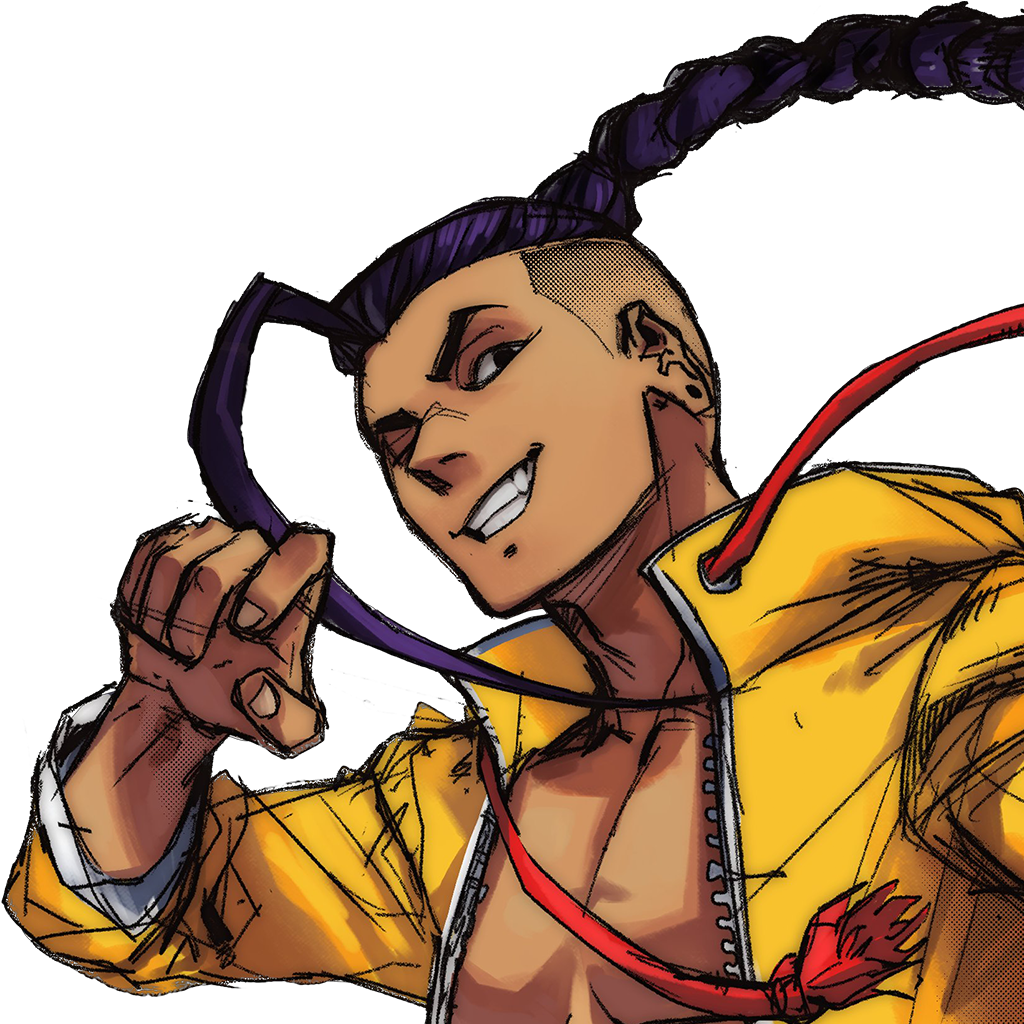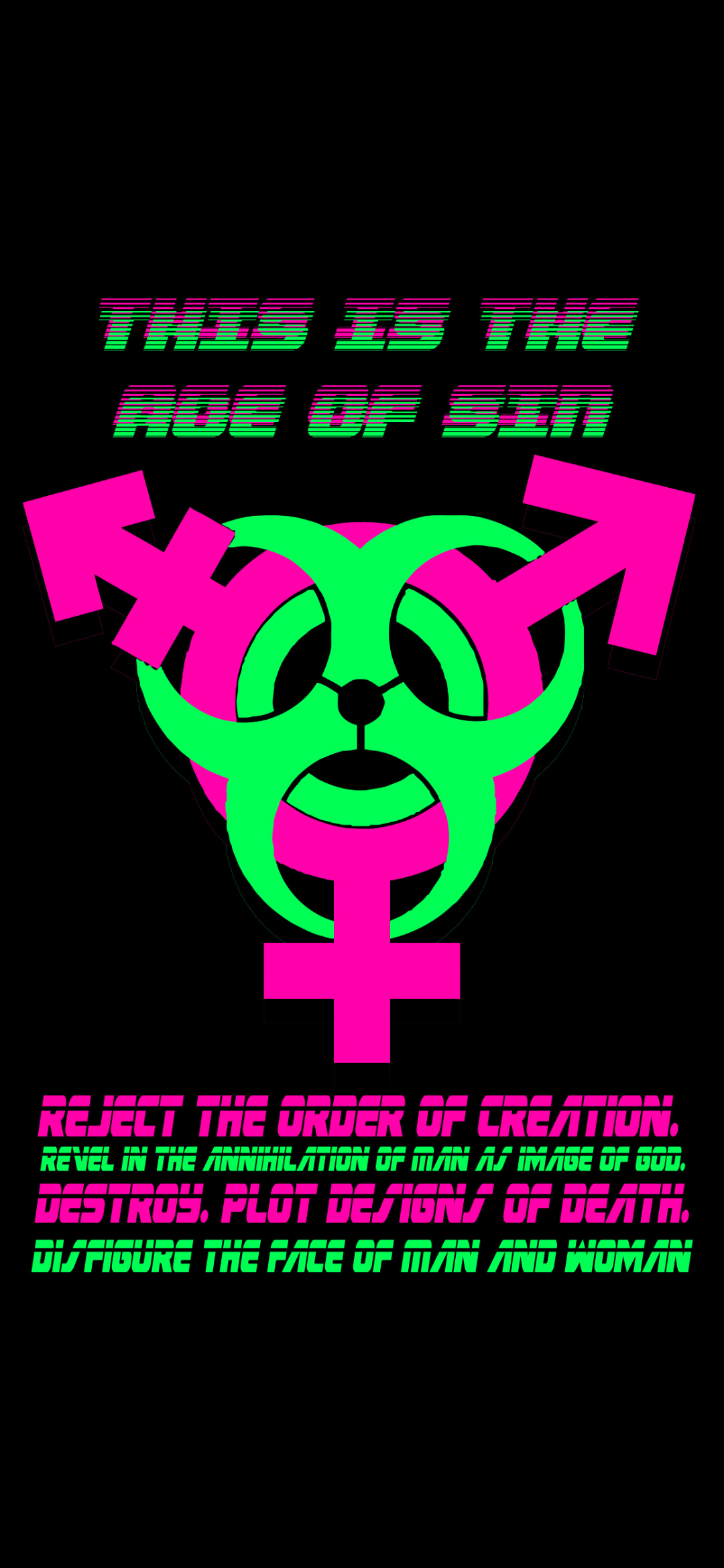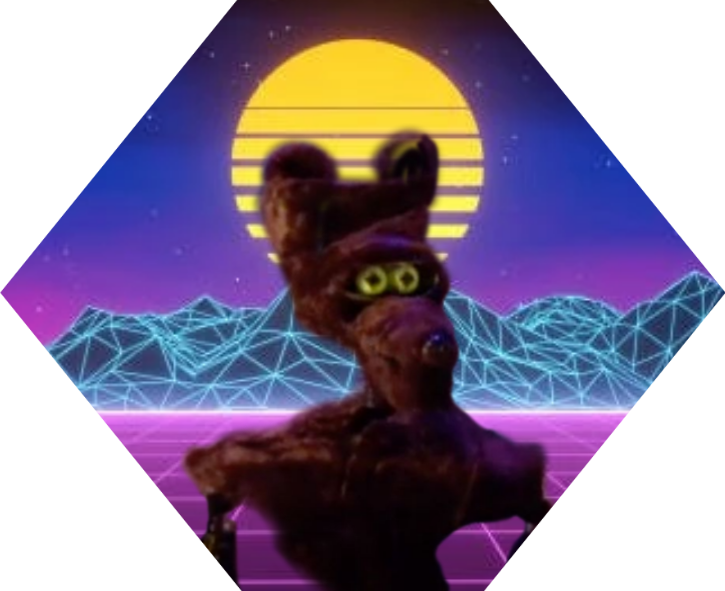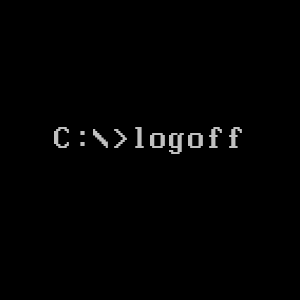Title. Need some examples of games that had lefty politics and leanings and weren't too ashamed to hide it. Platform/country of origin is irrelevant. I know about FF7's support for ecoterrorism, and even the nuance about the people caught up in the middle, and there's plenty of games that take an anti-corporate stance, but that can be easily brushed aside.
I'm specifically interested in this era as it's when games first acquired the ability to become fully immersive in their narratives with the adoption of multimedia melding into the core gameplay loop via the use of full motion video, voice acting, detailed images and so on.
Reminder: all games are political; even abstract puzzle games.
The grand daddy of games that are critical of the USA, Metal Gear Solid. Final Fantasy Tactics is really good too, especially the first half of the game which has big anti-monarchy anti-church energy and gets into class war shit.
Very true! I guess I should have led off with the better known ones first lol. Still tragic how much of this title's themes went over people's heads, but then, that's also what this post is about.
Yeah what do you expect from G*mers. What grabbed me so much as a pre-teen with MGS was how in-depth it's politics was, from anti-nuke discourse to genetic engineering and philosophical questions about fate. At the time, like so much media was still doing gung-ho america good, capitalism good, schlock.
The quote: "There's no such thing as an anti-war film." is as true about Starship Troopers as it is about Metal Gear.
It honestly has a lot to say about the way we fetishize war and special forces crap...but it also falls prey to indulging in the same thing it criticizes or even parodies. Kojima's schtick is to basically illustrate and frame special forces shit and military hardware with almost pornographic titillation and then sort of do an about face and say: "isn't it weird and kinda fucked up we're all so godamn horny about this stuff"?
Textually the series is antiwar, anti american foreign policy, and even ostensibly dissects the myth of the one man army super soldier....but it still relishes in presenting those things as cool as fucking possible.
Kojima’s schtick is to basically illustrate and frame special forces shit and military hardware with almost pornographic titillation and then sort of do an about face and say: “isn’t it weird and kinda fucked up we’re all so godamn horny about this stuff”?
That's why I love that scene from Snake Eater where BB obsesses over the 1911 handgun Eva gives him.
Textually the series is antiwar, anti american foreign policy, and even ostensibly dissects the myth of the one man army super soldier…but it still relishes in presenting those things as cool as fucking possible.
Yeah it falls into the same traps that "anti-war" movies fall into.
That’s why I love that scene from Snake Eater where BB obsesses over the 1911 handgun Eva gives him.
Absolutely*, and the fact that in/around that same scene you can leer at her chest isn't coincidental, especially given what we find out later. A lot of the series' fan service is, on some level, not entirely gratuitous. Its still quite often indulgent, but there is usually a thought behind it.
I feel like this work’s to the message’s advantage. Creating contrast between the text and subtext, or the text and its presentation, is more likely to get the audience thinking about the themes and leave a lasting and more profound impression than preachy moralizing, and it’s more likely to lead the audience toward a deeper understanding of the ideas presented as they have to do some thinking of their own to square the circle, so to speak.
Oh absolutely. I don't disagree at all. In fact I think part of what makes Metal Gear and Kojima's vision so compelling is that he on some level either understands or (more likely) shares the American fetishization and romanticization of violent warfare and the way its tied up with super/action hero narratives and media tropes. Part of what I find so interesting about the series is that its ostensible hero and "main character" Solid Snake is actually usually characterized as a complete dupe and tool for the establishment while its villains are instead idealists with grander ambitions who actually drive a lot of the forward momentum of the story Snake is trying to stop. That gets even more explicit as the series shifts to Big Boss.
Precisely something that I observed as well. Other games did not even slightly hesitate to make use of multimedia in their narrative to present an uncritically enthusiastic view of the US, capitalism, NATO, military intervention, and anticommunism generally. I recall Westwood's Command and Conquer Red Alert has some batshit insane politics (In the original C&C the GDI's Carter ofhandedly refers to Gavrilo Princip as a "madman who started WW1"), and EA's Soviet Strike and Nuclear Strike titles also had uncritical support of US military intervention, to the point that it had a voiceover where an actor puts on a comical Bill Clinton impression as a shady government official gives him the Other Kennedy Assassination Tape shakedown while explaining they were the ones actually in charge despite his protestations. And this was presented as a good and necessary thing in the complex geopolitical world of post-Soviet collapse, alongside re-intervening in Vietnam, North Korea, etc.
All the above was, of course, presented in cutting edge fashion with fully voiced real actors, computer graphics, stock footage of real combat and so on. Hardly a text box with white font over a blue background.
Yup that's the kind of shit I'm talking about. I should also mention Fallout and it's consistent message about war being bad in the original games.
I still play Nuclear Strike occasionally! And yeah you're spot on about it.
I'm trying to remember if Syphon Filter had any particularly bad politics and I can't remember. I remember that in SF2 the bad guy is, spoiler alert, ultimately the US government.
Warning effort post.
I'm convinced there are some anti-capitalist themes in the early resident evil titles.
spoiler for a twenty-five year old game
So, the first game is about weird billionaire eugenicists using their bioweapon company to create a perfect human based on their warped sense of purity. Only for it to destroy them.
Most of the enemies you fight are weapons developed as part of the military industrial complex.
Racoon city and its surrounding wilderness is crawling the products of failed Umbrella experiments but nothing is done about it because Umbrella has its hooks in anyone with any power. The powers that be in racoon ignoring the biohazards so that they can make themselves richer would be seen as hamfisted if it was written today.
RCPD ultimately protects property over people, so the only time they're actually called to deal with a BOW outbreak is when a corporate owned estate is in danger. And some notes in the orphanage reveal that the RCPD are actively supplying Umbrella with test subjects through kidnapping "undesirables" such as orphans and the homeless.
The US government is concerned entirely with retrieving the weaponry it payed for and covering its own tracks. It makes no attempt to rescue anyone and just nukes Racoon when it gets what it wanted.
Tl:dr "let's say for the sake of argument, if zombies were eating your neighbors, couldn't you just sell your house and move?" :shapiro-gavel:
This a great writeup and interpretation, I had never drawn the connection between STARS being called in only once the bioweapons threatened the manor property.
The later games are pretty much a (very convoluted) continuation on the same themes. The villain in RE4 wants to use the plagas for financial profit and political influence, Wesker starts a company to funnel money into perfecting his doomsday eugenics. RE6 is definitely a turd but iirc bioweapons have gone from potentially apocalyptic to commonplace tools of capital. Corporate espionage leads to outbreaks a few times throughout the series.
That said, there is a lot of really dumb shit in the middle games and re 7 and 8 really shy away from anti-capitalist themes by comparison.
Ok, thanks for providing further context. The only resident evil games I've completed post-nemesis are 6 and revelations 2 so I wasn't sure if the series kept up its themes.
You could tell it had tons of money and time put into it- it's not like it was some cheap piece of shit the studio crapped out. It was just clear that Capcom had no confidence in the franchise's identity with both RE 5 and 6 being attempts to desperately marry the RE4 formula with then-current gaming trends.
7 and RE2:Remake were a spectacular return to form (though the Revelations games were decent too)
6 definitely had an identity crisis. Imho revelations 2 had a more clear vision of what it wanted to be, but the episodic structure wasn't handled particularly well and hindered the plot structure and pacing.
You are 100% correct in this analysis, and I'm glad you noticed the deeper undertones in the story beyond "bad corporation"; the entirety of Raccoon City's bourgeoisie is in Umbrella's employ and exists to further their interests, whether they are aware of it or not.
Thanks, I considered not posting this because it felt like a stretch.
I wanted to hedge my bets because I haven't played many of the later titles.
are you sure you don't want to express this in a 7.5 hour video essay?
Seconding Resident Evil, you put a lot more effort into the post than I would have though so props for that lmao
Parappa the Rapper is the age old story of a broke rapping dog who competes with a rich asshole for the affections of a flower.
Jet Set Radio was great. Homeworld dealt with colonialism, genocide, and other issues in a really well done way. Syndicate is full of actual Cyberpunk dystopia. The original Red Faction is at the tail end of this era, but is an obvious choice.
I've heard the oddworld games have decent politics but I'm not that familiar with them tbh. Xenogears' politics are pretty verbose, but they explore religion as political power in a very unique way. People have already mentioned MGS and FF Tactics so I just wanna +1 both of those.
This is a weird pick but indulging the notion that all games are political, the N64/PS1/GBA Harvest Moon games had decent politics for their time. It's a farming sim where the goal isn't to make a shitload of money, it's about using your labor to restore and care for a community. If you spend every day maximizing your profits you get lots of cool upgrades but you don't get a very good ending. It's about strengthening bonds with your neighbors, preserving nature in the forest (esp HM64 iirc), and restoring a farm to produce food. You befriend the harvest sprites and they help on your farm, you don't hire them but rather form a loose co-op.
That said, the older games do have a really traditional view of family, they're not very LGBT friendly, and there's no overt themes of overthrowing capital in any of them. But they filter the idea of a worker through a lens of saccharine nostalgia wherein the protagonist shoulders the burdens of their community and has their burdens shouldered in kind. I'm probably projecting my politics onto them if I'm being honest, though I firmly Stardew Valley's anti-capitalist (or at least anti-corporate) tone would be non-existent without the old harvest moon games laying the ground work
Also, I can't believe no one is talking about dance dance revolution. It's politics are dance and revolution, what more could you want?
Oddworld is basically Tim Burton's Avatar except the humans won.
‘“This is worse than the time I got invited to a party on Jeffery Epstein’s Island!”
Silent Hill 2 has boomer politics
spoiler
Because, you know, wife-hating
"I just want to grill but my wife never shuts up about her terminal illness"
:grillman:
spoiler
I am now imagining Weberhead, a relentless hulking monster wielding a giant bbq fork who represents the repressed desire to grill
Fallout 1 and 2 are from this time period, are amazing games to boot.
I would take them over the Bethesda Fallouts (or New Vegas even) any day.
Criminally underrated games, with criminally overlooked politics. Of course, the g*mers are happy to ignore good politics if the game also allows the player the choice to do bad politics, in the interest of fairness - c'est la vie.
I know about FF7’s support for ecoterrorism, and even the nuance about the people caught up in the middle
FF7 had so much good stuff in it. There was the whole section where you explore Corel, a formerly prosperous industrial area destroyed by capitalism, then right next door is the Gold Saucer, a ridiculously saccharine theme park, built by the same company that ruined Corel, where they make you pay in their own special currency just to use a save point.
Other than that, the closest thing I can think of on the PS1 is Abe's Oddysee? I don't really remember the storyline in a lot of detail, but I think it was vaguely anticapitalist? The Longest Journey was a PC game in that era and had fairly leftie politics too, I think.
Been sitting here for a while trying to remember the story of Xenogears and what the politics actually were..
I remember a distinct criticism of religious politics and creationism theory lurking somewhere, but it has been a very long time
Yeah, the big church organization in the game is revealed to be a tool to control people for the "empire"
Gonna do this from memory, because being wrong is fun...
spoiler
A rogue sentient planetary siege weapon brokes loose while being transported through space... either be used or to be destroyed.
The captain of the ship tries to self destruct and kill the weapon but only manages to critically damage it. The remains of the weapon and enough genetic material hit a habitable planet that the weapon begins to rebuild itself. A part of that rebuilding is to create "humanity" from scratch.
The technologically advanced society that seems to be pulling the strings behind the scenes in the current period is guided by a group of religious zealots. Their religion is part of the programming from the weapon's self repair project.
I can't remember too much the politics of the game, just the "xenogenisis" and "religion as a literal part of the programming of living beings that serves the purpose of making those beings nothing more than literal cogs in a literal machine."
Ace Combat 3 was pretty good. But the story is all in Japanese, so you have to get a translated version, I think it's called project Nemo. Don't get the US or EU version, it sucks
The American version removes most of the story and player paths and choices. It's very different in that regard
I think Oddworld Abe's Odyssey was clearly about an indigenous proletariat class overthrowing capital exploitation
You make a good point, and I will happily concede that there were plenty of very immersive and flashy DOS-era games (Wing Commander 1/2 comes to mind, along with other Origin and LucasArts titles) with spectacular ways of presenting their stories using cartoonish VGA graphics. I suppose I wanted to draw the attention specifically to the useage of multimedia (live-action actors with voiced lines, stock footage, computer graphics, audio) to both attract the audiences attention and make it feel more "real". I pointed out the examples of C&C and and the Strike series as doing this and being explicitly set in the real, present-day world, or at least one not too far in the future, and the way they used these techniques to get their politics across.
Yeah, verisimilitude used in the application of immersion. And on the topic of its use in the transmission of their relative politics, I'm sure there's some more detailed Gramscian take that I'm probably not well-read enough to draw a conclusion upon, but I'll leave it there.
Red Faction: technically a bit past the cutoff since it was released in 2001, but still, it's a game where you play as a miner on Mars taking part in a rebellion against a mining company, with the rebels being depicted as unambiguously in the right
Ogre Battle 64: N64 strategy RPG where you command a revolutionary army fighting to overthrow your country's nobility and abolish its class system. The nobles are so determined to uphold their privilege that when the war starts going poorly for them, they summon massive demon armies to rampage across the land and threaten to bring about a literal apocalypse.













